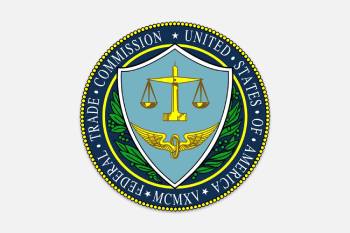Recovering from bankruptcy involves more than just eliminating debt. Rebuilding your credit is a crucial step in your financial recovery. A strong credit score opens doors to better financing options, lower insurance rates, and more. Let’s explore effective strategies for improving your credit after bankruptcy and how Warren & Migliaccio can assist you in this process.
Start by Reviewing Your Credit Report
The first step to improving your credit is to understand where you stand. You can obtain a free credit report from Credit Karma to review your credit history and current score. This report will help you identify any inaccuracies and understand what areas need improvement.
Improve Your Credit with 720 Credit Score
To help you rebuild your credit, we have partnered with the credit rehabilitation program, 720 Credit Score. This program is designed to guide you through each step of the credit rebuilding process:
- Program Details: The program spans 14 weeks and is customized to fit your specific needs. It provides a structured approach to improving your credit.
- Expected Results: Clients who complete the program typically see their credit scores reach 720 or higher within 12 to 24 months after bankruptcy.
- We offer scholarships to our bankruptcy clients, allowing you to enroll in this program at a significantly reduced rate. This partnership ensures you receive high-quality assistance without a hefty price tag.
Stay Positive and Persistent

It’s important not to get discouraged. Rebuilding your credit takes time and effort, but staying positive and persistent will pay off. Remember that setbacks are normal, and progress may be gradual. Keep focused on your goals and continue to take proactive steps.
Set Realistic Goals and Follow Up
Setting clear, achievable goals is vital for restoring your credit score. Start by defining what you want to achieve in the short term and long term. For instance, you might aim to increase your score by 50 points in six months and reach a score of 720 within 12 to 24 months.
Regularly follow up on your progress. Track changes to your credit report and make adjustments to your strategy as needed. Celebrate small victories along the way to stay motivated.
Understanding the Timeline for Credit Improvement
Improving your credit after bankruptcy typically takes 12 to 24 months of concerted effort to see significant improvements in your credit score. Clients who follow a structured credit rebuilding program often achieve a score of 720 or higher within this timeframe. Patience and persistence are key to this process.
What Not To Do When Trying To Improve Your Credit
Here are things you should try to avoid when working to rebuild your credit score after bankruptcy:
- Opening Too Many Credit Accounts: Applying for multiple credit accounts at once can hurt your score and signal financial instability.
- Ignoring Your Credit Report: Failing to regularly check your credit report can lead to missed errors or fraudulent activities that may negatively impact your score.
- Missing Payments: Consistently missing payments on new accounts can severely damage your credit score and undo any progress made.
- Maxing Out Credit Cards: High credit card balances relative to your limit increase your credit utilization ratio, which negatively affects your score.
- Taking on New Debt: Accumulating more debt while trying to rebuild your credit can lead to financial strain and hinder your ability to improve your credit score.
- Closing Old Accounts: Closing older credit accounts can reduce your credit history length, which is an important factor in your credit score.
- Ignoring Bills and Debts: Ignoring existing bills, such as utilities or medical expenses, can result in collections and further damage your credit.
- Co-signing Loans: Co-signing loans for others places your credit at risk if they fail to make payments, which can harm your credit score.
- Not Setting a Budget: Without a budget, you may struggle to manage your finances effectively, leading to late payments or additional debt.
- Applying for Payday Loans: These high-interest loans can trap you in a cycle of debt and make it even harder to rebuild your credit.
Avoiding these pitfalls can help you steadily rebuild your credit score after bankruptcy.
Additional Resources and Precautions

- Visit the Federal Trade Commission’s Website: The FTC provides valuable advice on fixing your credit. Their consumer advice page offers practical tips and resources to help you improve your credit score. https://consumer.ftc.gov/articles/fixing-your-credit-faqs
- Explore Local Grants and Loans: Some local and state governments offer grants and loans to help with debt and financial assistance. Check with your local agencies for available resources.
- Be Cautious of Scams: Watch out for credit repair scams that promise quick fixes. Ensure you choose legitimate services with a proven track record.
Take Action Today
Improving your credit after bankruptcy requires a proactive approach. Start by reviewing your credit report, addressing any issues with debt, and utilizing resources like 720creditscore.com. By following these steps and avoiding scams, you can work towards a stronger financial future.
If you need assistance or have questions about rebuilding your credit, the team at Warren & Migliaccio are here to help. For a free consultation with an attorney, call us at (888) 584-9614 or contact us online. Let us guide you through the process of improving your credit and achieving financial stability.

